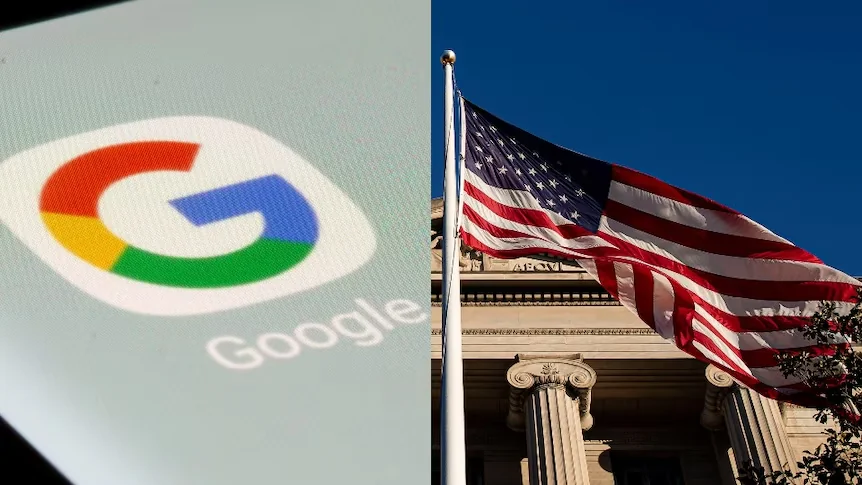
Google’s Lucrative Ad Tech Business Faces Trial: U.S. Department of Justice Accuses Alphabet of Illegal Monopoly Practices
Fiona Nanna, ForeMedia News
6 minutes read. Updated 10:07AM GMT Mon, 9 September, 2024
The U.S. government is setting its sights on one of the cornerstones of Google’s vast wealth: its highly profitable ad tech business. A trial beginning this Monday will witness the U.S. Department of Justice (DoJ) accuse Google’s parent company, Alphabet, of monopolistic practices within the digital advertising space—a sector responsible for driving over $200 billion in revenue last year alone.
The stakes are high. At the heart of the litigation is whether Google illegally stifled competition in its quest to dominate online advertising, or if the company’s success is merely a result of its innovative and efficient services. Alphabet insists that its advertising model succeeds due to the “effectiveness” of its services, but federal prosecutors argue that the company’s dominance harms consumers and restricts competition in a rapidly evolving marketplace.
For the global audience, this trial could resonate beyond U.S. borders, reflecting ongoing regulatory concerns about Big Tech’s influence on digital markets worldwide.
Second Major Antitrust Battle
This trial marks Google’s second significant antitrust case in recent years. In August, U.S. District Judge Amit Mehta ruled that Google had acted illegally to maintain its dominance over the online search market. While the penalties for this decision remain undetermined, the ruling has laid the foundation for the ongoing scrutiny of Google’s broader business practices, including its advertising arm.
The Justice Department’s latest lawsuit, filed in 2023 with the support of several states, asserts that Google maintains a stranglehold on the digital ad marketplace. They claim that Google has leveraged its market power to suppress innovation, limit competition, and consolidate its dominance in ways detrimental to both businesses and consumers.
Professor Laura Phillips-Sawyer from the University of Georgia School of Law weighed in on the matter, emphasizing the case’s significance: “It is a really important industry that grabs billions of consumer dollars every year. I think all consumers have an interest in this litigation.”
Despite these claims, Alphabet remains steadfast in its defense, maintaining that the online ad space is more competitive than ever, citing companies like Apple, Amazon, and TikTok as proof of increasing competition. Google has characterized the DoJ’s argument as a misrepresentation of the ad tech landscape, dismissing it in a 2023 blog post as out of touch with current market realities.
Complex Road Ahead for Regulators
The bench trial will be overseen by U.S. District Judge Leonie Brinkema. But while the government has gained momentum from Judge Mehta’s earlier ruling, many experts see the ad tech case as far more complicated than the online search monopoly case.
“Google is a monopolist, and it has acted as one to maintain its monopoly,” Judge Mehta stated in his prior ruling. However, the intricate nature of advertising technology could prove challenging for the government to simplify into a straightforward monopolization argument. According to Rebecca Haw Allensworth, an antitrust expert from Vanderbilt University Law School, “We all use search. We all intuitively understand that product. But advertising technology is so complex that I think that’s going to be a real challenge for the government.”
The defense will likely echo the arguments made in last year’s trial, asserting that businesses choose Google’s ad services because they work, not because they are forced to. Google claims its dominance stems from its ability to deliver better results for advertisers, not from manipulating the market.
International Implications and the UK Investigation
Although this trial is being closely watched in the U.S., the outcome will have global repercussions. Antitrust regulators across Europe and beyond are scrutinizing Google’s business practices. Just last week, the UK’s Competition and Markets Authority (CMA) released findings suggesting that Google’s behavior in the ad tech sector could be unlawfully harming thousands of publishers and advertisers within the UK.
The CMA noted that Google’s practices may have prevented competitors from gaining a foothold, further entrenching its dominance in the industry. While Alphabet has refuted these claims, calling them based on a “flawed” understanding of the sector, it’s clear that regulatory scrutiny is intensifying on both sides of the Atlantic.
With billions at stake, this trial could lead to sweeping changes not only for Google’s ad tech business but for the entire digital advertising industry, both in the U.S. and abroad. The verdict could set a precedent for future antitrust cases involving global tech giants.

